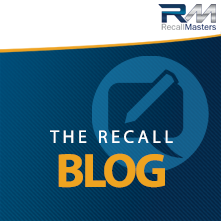A Tidal Wave of Change May Be on Its Way to Dealerships
A Tidal Wave of Change May Be on Its Way to Dealerships
A Blog Post by Dan Beres, Enterprise Services, OEM & Strategic Partnerships
Federal law currently prohibits dealerships from selling any new vehicle with an open safety recall to consumers. And now, Democratic Senators Richard Blumenthal (Democrat – Connecticut) and Edward Markey (Democrat – Minnesota) have reintroduced legislation that also prohibits the sale of used cars with open safety recalls, according to Automotive News.
If this legislation passes, it will have huge ramifications, not only for franchise and independent dealers but also for car shoppers. Whether you agree with this piece of legislation or are vehemently opposed to it, the industry’s practice of selling used cars with recalls has drawn the attention of lawmakers in recent years. Legislative analysts on Capitol Hill don’t predict its passage. However, support could grow if there is a change in the administration or if voters rally their Congressional representatives.
Here is what I predict will happen over time:
1. Consumers will see less value for their off-brand vehicle trade-ins
Consumer opinion (and rightfully so) is that they should leave the dealership with not only a fair trade-in value but also a vehicle that is safe to drive. To date, dealerships have not been required to repair open safety recalls before selling a used vehicle. If this new legislation passes, any consumer whose vehicle has an open safety recall will find a lower trade-in value at an off-brand dealership than at a same-brand dealership. Because the off-brand dealership will have to hold onto the vehicle longer while they wait for the recall repair to be completed at what could be a competitor. Consumers, however, don’t care what the financial repercussions are for the dealership. They only care that they get a fair value for their trade and that the vehicle they are buying is safe.
2. Dealerships will find off-brand used vehicles more expensive to acquire
Front-line ready used vehicles at auction have become increasingly expensive. This legislation could easily segregate bidders and their strategies. A used Ford with an open safety recall will be more desirable to a Ford dealership than an off-brand vehicle for the simple reason that the Ford dealership can complete the open safety recall and recon it quickly. While the competing off-brand dealership is entirely reliant upon the speed at which the competitor can fix it. If you’re a Mazda dealership and a customer trades a used Toyota with an open safety recall, you may end up at the bottom of that dealership’s priority list, behind their loyal customers and even new customers who need recall repairs. The longer you have to hold on to that Toyota before selling it, the more expensive it is.
3. Dealerships will find same-make vehicles more attractive as trades and at auctions.
The opposite is also true in that when presented with a customer who has a same-brand trade, dealerships will be more motivated to acquire that vehicle for their inventory than they would an off-brand trade. It has always been less expensive to take trades from existing customers than at auction and dealerships will become more aggressive with same-brand vehicle trades and at auctions than ever before.
There will be pockets of brands bidding on same brand vehicles, and it will become a part of the trade-in values/appraisals process and auction bidding prices. Because, while the winning bid price may be higher, the dealership knows it can repair the safety recall, recon the car and have it ready for sale faster than an off-brand dealership can.
4. Independents will struggle
Huge independents, including CarMax, will become entirely dependent upon franchise dealers to service any vehicles with an open recall that they buy or take on trade. Unlike franchise dealers, they can’t “pick and choose” vehicles from customers. This legislation could completely change their business model. While the used car market has been hot, most independents are frustrated with the increased competition from franchised dealerships looking to acquire same-brand vehicles at auction. The increased demand for used cars has caused independents to drop prices to compete with franchised dealerships, which are perceived as more credible to the consumer.
This Blumenthal legislation is, of course, being lobbied aggressively by state ADAs and IADAs, along with just about everyone in the automotive industry. Consumers (the voters) will most definitely be in favor of it. And that is who politicians pay the most attention to. Aside from any political arguments, the need for open recall safety information will become increasingly crucial to all dealerships, both franchise, and independents. It’s hard to argue that consumer safety won’t win out in the long run, which should give all dealerships fair warning about what is to come.
The good news is that the endgame here is that vehicles, passengers, and the roads will be safer for everyone. And we’re all for that outcome.
About the Author


